

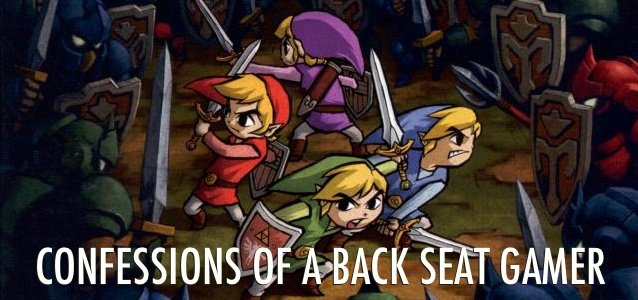
For my very first feature for Gameranx, I thought it might be productive to destroy my non-existent credibility right off the bat by announcing that I am guilty of something that is considered a cardinal sin in the gaming community: I am a backseat gamer. Put another way: as much as I love to play, I also love to watch. Many a peaceful evening is spent these days sitting next to my partner as he plays Call of Duty: Black Ops, pointing out cloaked snipers whose positions he is having trouble locating, paying rapt attention to every scrap of text and spoken dialogue as I start to build a greater sense of the world and the narrative.
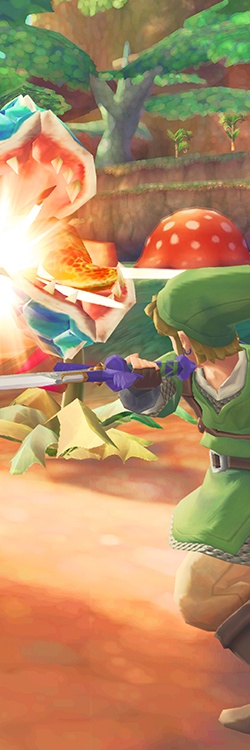
Honestly, I blame Nintendo. Growing up, gaming was a profoundly social activity in my family. When we got out first NES, my dad, my brother and I, all on the same learning curve (it was our first at-home console), would pass the controller back and forth, each taking turns until we passed a particularly challenging level. My fate as a lifelong (and co-operative) console gamer was sealed a few years later, however, when my aunt bought my brother and I an SNES as a late Christmas present. She also bought us the Legend of Zelda: A Link to the Past. My brother Michael and I played that game, together, for a solid year and a half.
I blame this intense, co-operative Legend of Zelda experience for shaping the way that I play games to this day. I was nine, and my little brother was seven; we'd sit together on his bed, in front of the tiny tube television my parents let him keep in his room, and adventure and problem-solve. He'd developed a nasty case of Gamer's Thumb (bad blisters), especially on his left hand, mostly from sweeping it across the direction pad mastering the special moves in Street Fighter, so would often ask me to play while he would offer comments on the narrative, insight into how to solve puzzles, weak spots to place bombs. When his hands healed, he held the controller more often; I developed a keen sense of Nintendo Vision, able to see hidden details in the architecture, secrets and traps. When we played alone, we hand-drew maps and wrote down instructions for each other so neither of us would feel lost or like we missed something. Once, I remember sitting bolt upright in bed, having suddenly put together how to find the Magic Cape. I snuck into his room, woke him up, and we muted the TV while he excitedly watched me play.
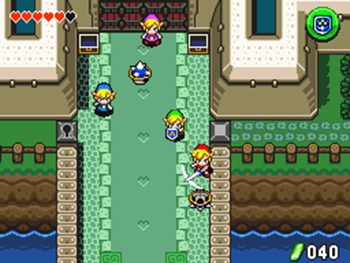 I've been chasing that experience, that co-operative joy, for the rest of my gaming life. The closest that I've gotten to reaching it again was during my Master's degree at the University of Calgary, when a group of my classmates (all brilliant literary minds, now professors and published authors) would get together once a week to play Zelda: Four Swords. We actually assembled all of the cables, gameboys, console and people necessary to play the four-player cooperative mode to its fullest extent, and it was glorious. We started to refer to our Wednesday gaming night as The Sabbath; only the most critical emergencies would result in someone unable to show up. The game combined co-operative problem solving and classic Zelda puzzles with just the precise amount of dickery to hit the sweet spot for all of us. In the coming years, we played a lot of muliplayer games together (there are few things more glorious that super-drunk Mario Party), but nothing else quite matched that experience.
I've been chasing that experience, that co-operative joy, for the rest of my gaming life. The closest that I've gotten to reaching it again was during my Master's degree at the University of Calgary, when a group of my classmates (all brilliant literary minds, now professors and published authors) would get together once a week to play Zelda: Four Swords. We actually assembled all of the cables, gameboys, console and people necessary to play the four-player cooperative mode to its fullest extent, and it was glorious. We started to refer to our Wednesday gaming night as The Sabbath; only the most critical emergencies would result in someone unable to show up. The game combined co-operative problem solving and classic Zelda puzzles with just the precise amount of dickery to hit the sweet spot for all of us. In the coming years, we played a lot of muliplayer games together (there are few things more glorious that super-drunk Mario Party), but nothing else quite matched that experience.
Party games, MMORPGs and multiplayer campaigns all offer potential solutions to the multiplayer experience I'm seeking, but as an adult I've returned to a very similar position that I occupied as a nine-year-old: the co-player, and more frequently the back seat gamer. I'm an active, vocal gaming companion, hungry to advance the narrative. When I play by myself, it feels strange without a wingman next to me, an extra pair of eyes; at it's heart, gaming will always be a profoundly social experience for me, one I've always shared with people I care deeply about: my brother, my best friends, and now my partner.
What I would like to get across in this admission is that there are a lot of positions to play from, and not all of them are 100% behind the controller (or keypad, or mobile device, although I play a lot this way too). Most of the material out there that I have seem about back seat gaming – web comics, articles – talk about how annoying it is to have someone who just watched you play, shouting out advice and trying to take over the action on screen while not physically holding on to the controller. Conversely, there have also been a lot of hilarious things written, drawn and said about how annoying it is it be a backseat gamer (this Dorkly comic is my favourite example), especially when your copilot flatly refuses to work with you.
So, I wanted to make some small effort to redeem the position of the back seat gamer, admittedly with not a small bit of self-interest. It's a position that I own, proudly. It's also a position that I am damn good at too, to the point where most of my co-players (and especially my current partner) actively seek out my help. It also opens up the definition of gaming a bit to include the often over-looked performative aspect of it: it's one thing to watch a speed run on Youtube, but an entirely different experience t be standing next to someone while they achieve it is person.
I am a back seat gamer, and I am not ashamed to admit it. Maybe a more accurate way to describe it is: I am an excellent gaming co-pilot, and it is as much a part of my gamer identity than my actual playing experience is. In talking about back seat gaming, or co-playing, in not entirely negative terms, I'm hoping to open up the definition of what makes a gamer, and acknowledge who is actually enjoying and consuming games isn't always (only) the person holding the controller.
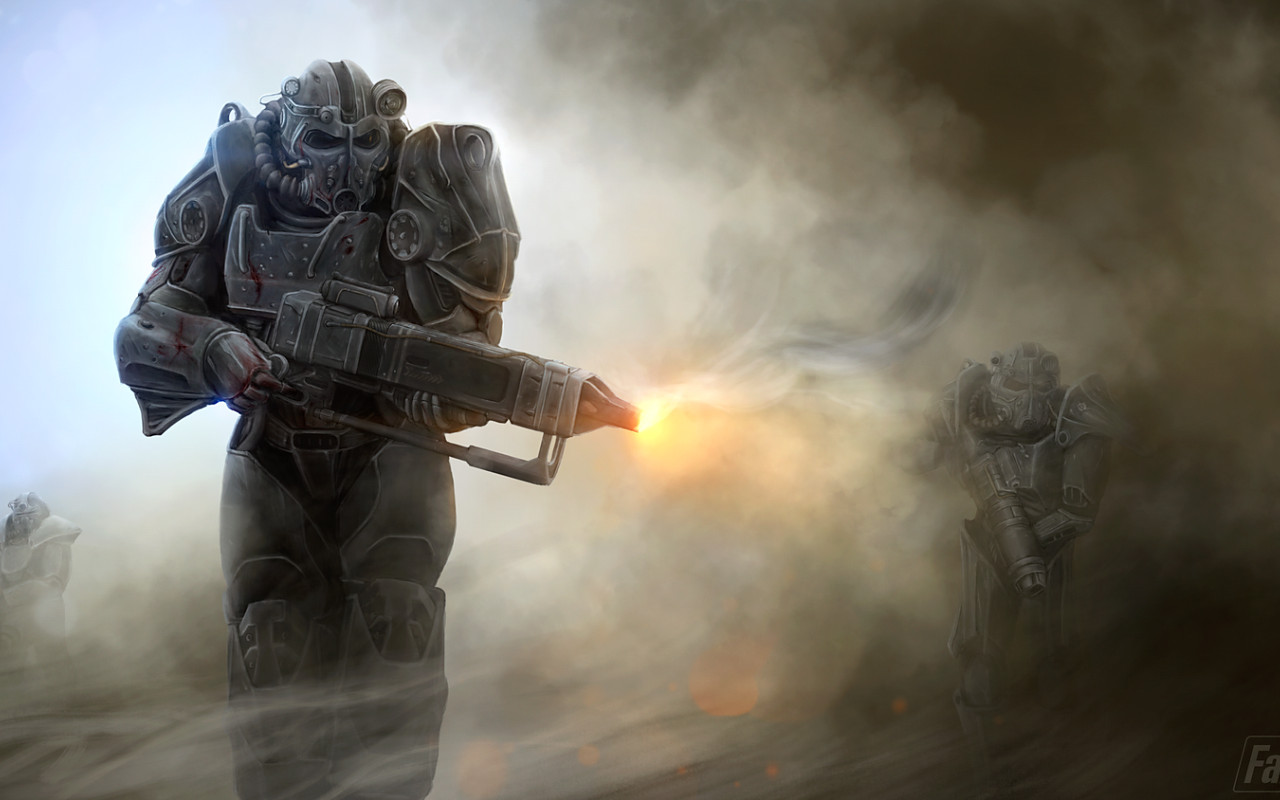
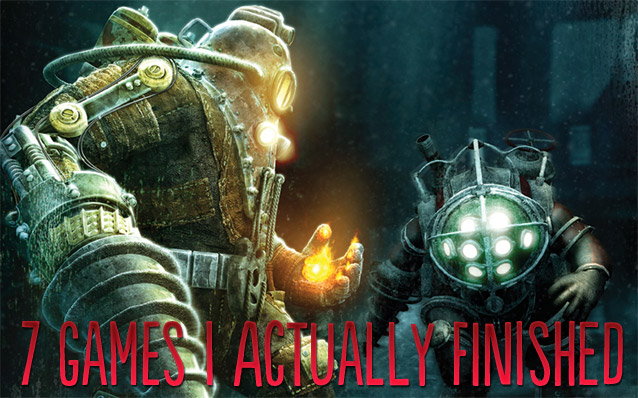


 Halo Wars Guide
Halo Wars Guide Dying Light: Minimum / Recommended PC Requirements to play zombie game
Dying Light: Minimum / Recommended PC Requirements to play zombie game Good weapons in Dark Souls 2: Dual Caestus
Good weapons in Dark Souls 2: Dual Caestus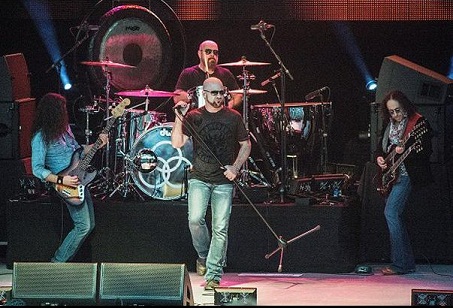 Led Zeppelin surprise fans with new songs
Led Zeppelin surprise fans with new songs Do Everything in the Car Hands Free With Google Now
Do Everything in the Car Hands Free With Google Now